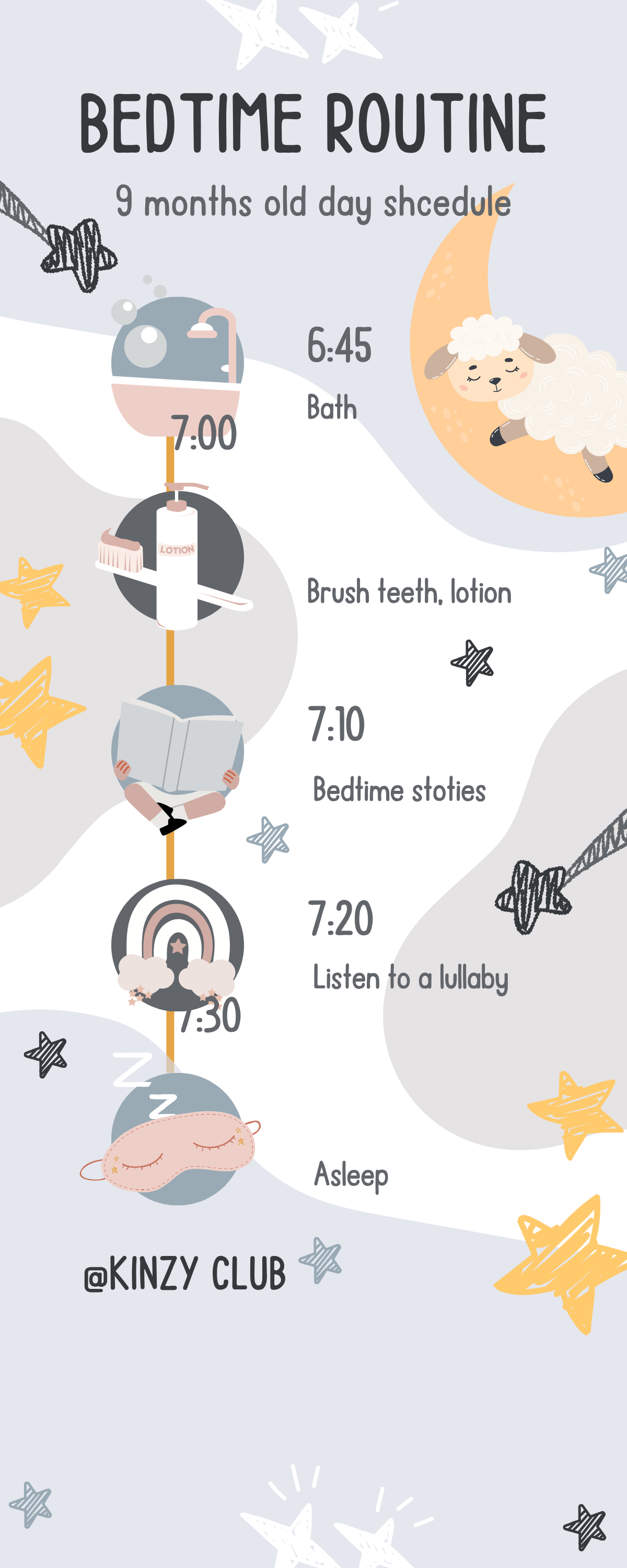Getting a 9 month old to sleep can be quite a challenge for parents. At this age, babies are developing rapidly, which can lead to sleep disruptions due to teething, growth spurts, or changes in routine. Establishing a good sleep routine is crucial, as it not only helps the baby rest better but also supports their overall development and gives parents a much needed break. In this guide, we will explore effective strategies to create a calming sleep environment and establish healthy sleep habits for your little one.

1. Understanding Your 9-Month-Old’s Sleep Needs
As a parent, it’s important to recognize how much sleep your 9-month-old really needs. At this age, babies typically have specific sleep patterns that can help guide you in creating a routine.
Typical Sleep Patterns
Most 9-month-olds sleep around 12 to 14 hours in a 24-hour period. This generally includes nighttime sleep along with a couple of daytime naps.
Ideal Amount of Sleep and Naps
A good rule of thumb is to aim for about 11 to 12 hours of sleep at night, plus 2 to 3 hours of naps during the day. Many babies this age take two naps, but some may transition to just one longer nap as they get older.
By understanding these sleep needs, you can help your little one rest well, which is important for their growth and development.

2. Crafting a Bedtime Routine: to Help Your 9-Month-Old Sleep
Why a Bedtime Routine Matters: Having a calming and steady bedtime routine is really important for helping your baby understand that it’s time to sleep. This routine can comfort them and signal that the day is winding down.

- Warm Bath: Give your baby a warm bath to help them relax.
- Quiet Time: Turn off bright lights and make the room calm.
- Read a Story: Read a short, gentle story to your baby.
- Sing a Lullaby: Sing a soft lullaby to soothe them.
- Cuddle Time: Spend a few minutes holding your baby close.
- Dim Lights: Lower the lights to create a sleepy atmosphere.
- Comfortable Sleep Space: Make sure their crib or bed is cozy and safe.
These steps can help signal to your little one that it’s time to wind down and get ready for sleep

3. Creating an Ideal Sleep Environment: to Get 9 Month Old to Sleep
Creating a restful sleep environment is crucial for your 9-month-old’s sleep quality. Start by optimizing the room’s lighting; use blackout curtains to block out any intrusive light, promoting a darker environment conducive to sleep.

Temperature is another key factor; aim for a comfortable range of 68-72°F (20-22°C) to ensure your baby is neither too hot nor too cold. Lastly, ensure the sleeping area is organized with soft bedding and a safe crib, which can contribute to your baby’s overall comfort.
4. Swaddling and Sleep Sacks: Ensuring 9 Month Old to Sleep Safely
These can be beneficial for your baby’s sleep routine. Swaddling provides a sense of security, mimicking the coziness of the womb and can help reduce startle reflexes that might wake them up.

When using swaddles, ensure they are snug around the arms but loose around the hips to prevent hip dysplasia. As your baby grows, transitioning to a sleep sack can offer comfort while allowing them to move their arms and legs freely.

5. Managing Sleep Associations: to Get 9 Month Old to Sleep Independently
Understanding sleep association (things your baby associates with to fall asleep) is essential to encourage independent sleep. Common associations might include being rocked, fed, or held until they fall asleep.

To help your baby learn self-sleeping techniques, gradually reduce the amount of assistance you offer during bedtime. And allow them to practice falling asleep without assistance

6. Addressing Night Wakings Get 9 Month Old to Sleep Through the Night
Night wakings can be common at 9 months, often due to developmental milestones, teething, or changes in routine. When your baby wakes during the night, first assess their needs, are they hungry, uncomfortable, or needing comfort?

To soothe your baby back to sleep effectively, try minimal interaction; keep the lights dim and speak softly. Encourage your baby to settle without picking them up immediately. If persistent wakings continue and seem unusual, consider seeking advice from a pediatrician to rule out any underlying issues.

7. Nutrition’s Role in Sleep: Help 9 Month Old to Sleep Better
Nutrition plays a significant role in your baby’s sleep patterns. A well-balanced diet during the day promotes better sleep at night. So establishing consistent feeding schedules helps your baby learn when to expect meals and makes it easier to develop a bedtime routine.
Additionally try keeping an eye on snacking because a light, healthy bedtime snack can help if your baby seems hungry before sleep. Foods containing tryptophan, like turkey or bananas, can be beneficial, as they may promote sleepiness.
8. Knowing When to Seek Help
It’s important to recognize when your baby’s sleep patterns may indicate a concern that requires professional advice. Signs to watch for include excessive fussiness, trouble falling asleep, or waking frequently and not settling back down. If these issues persist even after your best efforts, try consulting with a healthcare professional, such as a pediatrician or sleep specialist, can provide insights and potential solutions tailored to your baby’s needs.
Conclusion
Remember that each baby is unique, so it’s important to be adaptable and responsive to your child’s individual needs as you guide them through their sleep journey.
Thanks for reading, And also do tell us that what parenting tips you found helpful!
Also do check our Kinzy App to create fun memorable stories through our advanced Ai assistant with your kids.
Check out Kinzy Club Blogs for more such helpful articles.
Try out our App:
App Store: https://apps.apple.com/in/app/kinzy/id6743426150
Play Store: https://play.google.com/store/apps/details?id=club.kinzy.app&hl=en_IN ↩︎





